#Christian Businessperson
Text
It’s not clear what, exactly, Lorie Smith’s problem is. The Colorado woman aspires to be a web designer; apparently, she’s also upset that gay people can get married. Smith is an evangelical Christian who says that her faith makes her object to same-sex marriage.
This wouldn’t be anyone’s problem, except that Smith lives in a state with a robust civil rights law, one that forbids business owners who make their services available to the public from discriminating. But Smith really wants to discriminate: she hopes to be able to turn away gay clients from her as-yet-hypothetical wedding website business; she wants to put a banner at the top of her business homepage proclaiming her unwillingness to design websites for gay weddings. The law would forbid this if she ever went into business, so she’s suing.
As of now, none of this has actually come up. At the time Smith filed her lawsuit, demanding an exemption to her state’s law, she didn’t even have a business with which to discriminate. The law has never been enforced against her; she’s never had the opportunity to discriminate that she so craves. It’s not clear, in other words, that she really has standing to sue – she’s never been forced to provide services to gay people, so, in legal parlance, there’s no “injury” to speak of. But Smith is an angry conservative, and she’s found some very well-funded lawyers from the Alliance Defending Freedom, a huge rightwing legal organization that has embarked on a nationwide campaign of lawsuits to erode civil rights protections for gay people.
The result is 303 Creative v Elenis, a case in which Smith argues that her religious convictions mean that she shouldn’t have to comply with a generally applicable civil rights law, and should be granted license to discriminate by her state. The US supreme court heard oral arguments on Monday, and the 6-3 conservative majority is certain to hand Smith a victory allowing her to deny service to clients based on sexual orientation.
A decision from the court is expected next summer. The question, as happens so often with this rabidly conservative court, is not who is going to win. That question was probably answered the moment the court agreed to hear the case, to the point that briefings and oral arguments in hot-button culture and identity cases like 303 Creative have been rendered largely moot.
The question, instead, is how far the court will go: how much the justices will unravel the anti-discrimination laws that govern public accommodations – that is, the laws that say that businesses which serve the public cannot deny service to people based on their identity – and how much discrimination, humiliation and bigotry in public life they will unleash upon gay Americans. The question is whether the speech that Smith can deploy in any other form of her life – any belief that she already has every right to broadcast online, or in her church, or in writing, or by holding a sign up in the street – is also an opinion she is entitled to enforce through the conduct of her business.
If the 303 Creative case sounds familiar, that’s because it’s more or less a rerun. In 2018, the supreme court heard Masterpiece Cakeshop v Colorado Civil Rights Commission, another case by a business owner challenging the same state law, this time a baker who didn’t want to make a gay couple’s wedding cake. In that case, the court punted, ruling that lower tribunals had mishandled the case, but not making a decision on the merits about whether an individual businessperson’s opinions trumped civil rights law. But the court looked very different in 2018: that punting opinion was written by Anthony Kennedy, who retired soon thereafter and was replaced by his protege, the beer enthusiast Brett Kavanaugh. Since then the court has lurched even further to the right, and has shown a willingness to indulge even the most far-fetched claims of Christian religious litigants.
But it’s worth considering what the court did not do when it agreed to hear 303 Creative: it did not grant certiorari on Smith’s claim that her religious freedom was violated by the anti-discrimination law. This is unusual, for this court: since the Trump justices joined the court, turning it from what was already a quite conservative institution into a maximalist, revanchist one with a culture-war axe to grind, the court has expanded free-exercise-of-religion rights quite rapidly – at least, so long as those free-exercise rights are being exercised by conservative Christians.
The court has even specifically used the constitution’s free-exercise clause to imply an entitlement to discriminate against homosexuals: in last summer’s Fulton v Philadelphia, the justices ruled that municipal agencies handling the welfare of children in need were obliged to work with a religiously affiliated adoption agency, even though that agency discriminated against gay couples in violation of city civil rights law.
But in 303 Creative the court is only considering Smith’s wish to discriminate as a free speech issue. This opens a new avenue for challenges to civil rights law, and will provide an opportunity for rightwing lawyers to begin unraveling the laws regarding non-discrimination in public accommodations in the wake of the civil rights movement, like pulling on a loose thread to unravel a sweater.
Though Smith wants to discriminate only against gay couples, and other exemptions to civil rights law are likely to focus on allowing open bigotry against LGBTQ+ people to be expressed in commercial life, there is no limiting principle that means that only gay people will be targeted. After all, if a website designer is allowed to decline to make a gay wedding website, what stops her from making the same claim to refuse an interracial wedding, or an interfaith one? Is she allowed to decline to make sites for birth announcements of children born to gay couples, or via IVF?
I keep thinking of the sign that Smith wants to put at the top of her future business’s webpage, the one that says she won’t make websites for gay weddings. It’s essentially an advertisement of her belief in gay people’s inferiority, an effort to exclude them not just from her own goodwill, but from commercial life. How different is such a sign, really, from those that advertised whites-only lunch counters, or the signs that the late Justice Ruth Bader Ginsburg recalled seeing in the windows of shops when she went on family road trips as a child: “No dogs and no Jews”.
It has become vogue, in rightwing legal arguments against civil rights law, to speak of the “indignity” imposed on anti-gay business owners who are forced to comply with anti-discrimination law. It’s a shame that the court doesn’t seem poised to consider the indignity of facing discrimination itself.
210 notes
·
View notes
Text
Character ask: Jacob Marley (A Christmas Carol)
Tagged by anonymous
Favorite thing about them: Just how unforgettable he is as a character, despite how brief his role is. He's probably second only to Shakespeare's King Hamlet as the most famous ghost of a dead man in English literature, and rightfully so. He's frightening, yet pitiable too, and every line he speaks is pure poetry. He has some touches of humor about him (mainly from Dickens's wry narrator voice), but without reducing the seriousness of his suffering or his message. And despite having died an unrepentant sinner, he now repents enough, and cares enough about his old friend Scrooge, that he not only visits Scrooge himself, but arranges for other, more powerful ghosts to visit him too in hope of redeeming him, and he succeeds.
Least favorite thing about them: Well obviously, he wasn't a good man when he was alive. That's the point: he's an example of what Scrooge's fate will be if he doesn't change.
Three things I have in common with them:
*I can be greedy and self-absorbed, though I try not to be.
*I want to help others, as he does now that he knows the error of his old ways.
*I can be melodramatic.
Three things I don't have in common with them:
*I've never been a cold, ruthless businessperson.
*I'm female.
*I'm still alive.
Favorite line:
“It is required of every man that the spirit within him should walk abroad among his fellowmen, and travel far and wide; and if that spirit goes not forth in life, it is condemned to do so after death. It is doomed to wander through the world—oh, woe is me!—and witness what it cannot share, but might have shared on earth, and turned to happiness!”
“Oh! captive, bound, and double-ironed, not to know, that ages of incessant labour by immortal creatures, for this earth must pass into eternity before the good of which it is susceptible is all developed. Not to know that any Christian spirit working kindly in its little sphere, whatever it may be, will find its mortal life too short for its vast means of usefulness. Not to know that no space of regret can make amends for one life’s opportunity misused! Yet such was I! Oh! such was I!”
“Business! Mankind was my business. The common welfare was my business; charity, mercy, forbearance, and benevolence, were, all, my business. The dealings of my trade were but a drop of water in the comprehensive ocean of my business!”
“At this time of the rolling year, I suffer most. Why did I walk through crowds of fellow-beings with my eyes turned down, and never raise them to that blessed Star which led the Wise Men to a poor abode! Were there no poor homes to which its light would have conducted me!”
brOTP: Scrooge, his only friend.
OTP: None.
nOTP: Any living person.
Random headcanon: In the end, thanks to his act of arranging for the three Christmas ghosts to visit Scrooge and lead him to redemption, he's freed from his chain and ascends to heaven. I know I'm not alone in wanting to believe this, so I will. I just don't like the idea of eternal punishment for a soul who has clearly learned his lesson and repents; especially not after he saves Scrooge's soul, which means he deserves part of the credit for saving Tiny Tim's life and all the other good deeds Scrooge will do.
Unpopular opinion: He doesn't reside in hell. Dickens makes it clear that his punishment (and apparently the punishment for all cruel, uncharitable people) is to travel endlessly through the world, witnessing the suffering of others whom he failed to help in life. In Dickens's world, there evidently is no hell, in the conventional sense: hell is on earth, in the suffering of those in need. This unconventional theology suits the book's message of social commentary perfectly, and I get tired of seeing adaptations imply that he comes back from a traditional fire-and-brimstone hell, which is so much less interesting and less relevant to the message.
Song I associate with them:
"I Wear a Chain" from The Stingiest Man in Town.
youtube
"Marley and Marley" from The Muppet Christmas Carol.
youtube
"Link By Link" from A Christmas Carol: The Musical
youtube
Favorite pictures of them:
John Leech's classic illustration:

This illustration by Fred Bernard:

This illustration by J.P. Lynch:
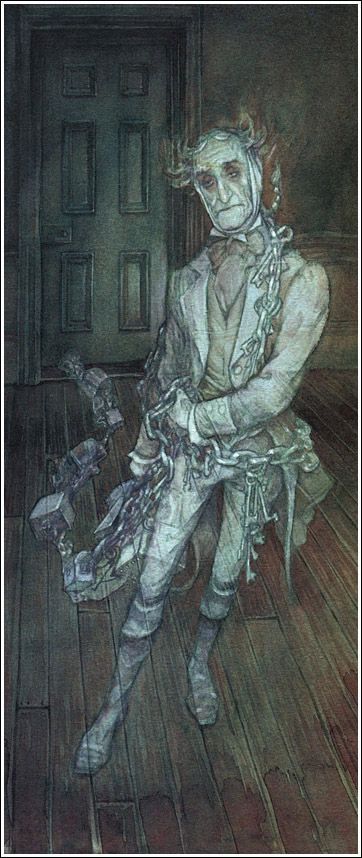
Leo G. Carroll in the 1938 MGM film:
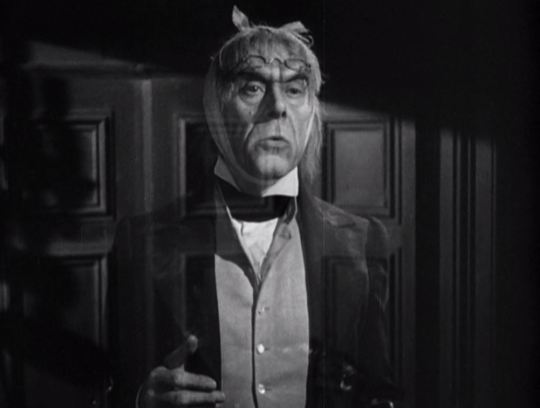
Michael Hordern in the 1951 British film:
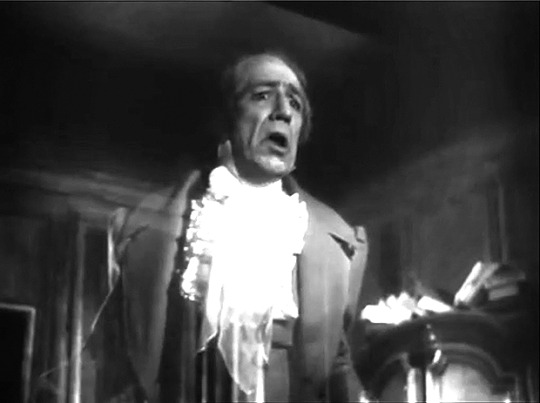
The animated Marley from Mr. Magoo's Christmas Carol:
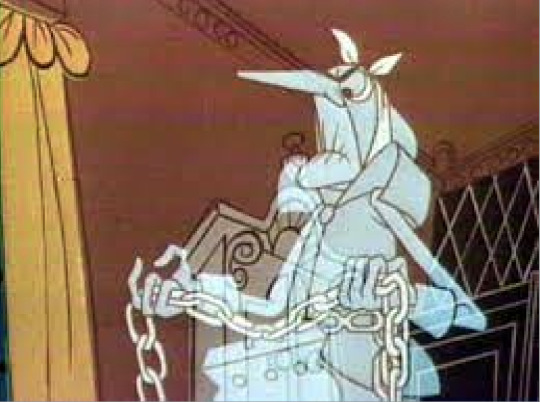
Alec Guinness in the 1970 musical Scrooge:

Frank Finlay in the 1984 TV film:

Bernard Lloyd in the 1999 TV film:

Motion-captured Gary Oldman in the 2009 CGI film:
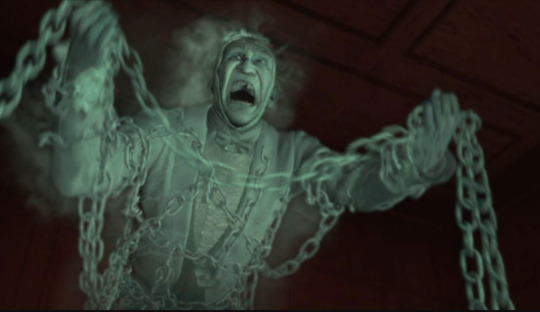
#character ask#a christmas carol#jacob marley#marley's ghost#ask game#fictional characters#fictional character ask
42 notes
·
View notes
Text
youtube
Voices From the Holy Land (recording)
December 11, 2022 - Q&A Discussion on Come and See; Go and Tell --- Next Year in Palestine with Rifat Kassis, author; human rights activist, General Coordinator of Kairos Palestine & Global Kairos for Justice; Sam Bahour, Ramallah-based Palestinian-American writer, businessperson, and activist; and Rev. Dr. Mae Elise Cannon, Executive Director, Churches for Middle East Peace. Dr. Michael Spath, founder & Executive Director of Indiana Center for Middle East Peace moderated the conversation. Be sure to check out the Bonus links at the end. This event was co-sponsored by Friends of Sabeel North America, Churches for Middle East Peace, Palestinian Christian Alliance for Peace, Pace e Bene Nonviolence Service, Indiana Center for Middle East Peace
0 notes
Text
AKBF Opens Abuja Headquarters, Set To Boost Christians' Participation In Politics
AKBF Opens Abuja Headquarters, Set To Boost Christians’ Participation In Politics
A network of Christian professionals and businesspersons under the aegis of the Africa Kingdom Business Forum (AKBF) has inaugurated its international headquarters in Abuja, pushing for to change the narrative of limited participation in politics by members of the Christian faith.
The forum, which aims to transform Africa, staring from Nigeria, noted the its headquarters with the state of the…
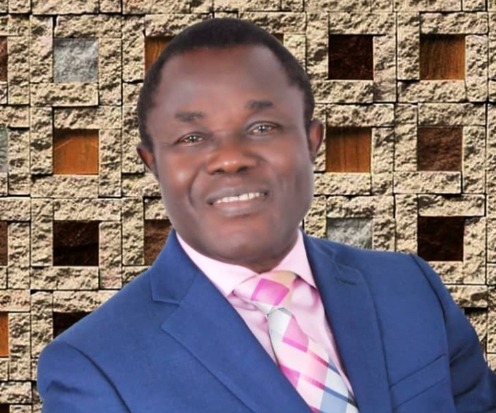
View On WordPress
0 notes
Text
god, this job listing is something else...
first and foremost: it should be illegal to list a frikkin church planting job as "Remote" -- unless it's some kind of experimental virtual church deal, but a church/café with a physical storefront on the French Alps definitely doesn't qualify
second... well, here's the first bit of the listing
East-West seeks to take the gospel into the spiritually darkest areas of the world, including Albertville, France. With the majority of locals claiming social Catholicism, 30 percent no religion, and less than three percent of Protestant faith, there is a clear need for a church planting movement.
The "spiritually darkest areas of the world" -- like the French Alps. After all, they're mostly (horror of horrors!) Catholics, and possibly not even practicing! Now granted, I have very little experience with planting churches myself, but it seems to me that you're very unlikely to succeed if your target audience already identifies as Christian and has their own church.
Not to mention that Albertville was one of the towns in France that saw the police arresting actual children for "glorifying terrorism" because they thought that the Charlie Hebdo cartoons mocking Mohammed were inappropriate. Maybe Albertville needs someone who can be sensitive to other religions, rather than someone who thinks that the 97% non-Protestants are desperately in need of some good ol' American Jesus.
And then, the icing on the cake -- they want a businessperson. Not a minister. Not a missionary. An entrepreneur. They don't even list French language proficiency as desired, let alone required (maybe they figured it was implied? Maybe, but I somehow doubt it). They literally want a Christian-flavored capitalist so they can run a "Kingdom-minded profitable business."
Apply for this "remote" job, move to France, and run a successful business! Oh, and something something Jesus.
3 notes
·
View notes
Text
Character bios pt 2!!
Decided to continue the bios for the rest of the fam squad, the full extended family!! Might change things around a bit, we’ll see!!! Here’s part one in case you missed it :3
Emile Sanders (formerly Picani):
Age: 46
Pronouns: he/him/they/them
Height: 6’1”
Curly medium golden mahogany brown hair and sky blue eyes, subtly tanned skin covered in freckles, red framed rounded glasses, likes dressing like a cartoon character or just wearing cartoon merch (his prized possession is his Mabel pines jumper) but wears a brown cardigan over a white button down shirt with a pink necktie when he goes to work
A big goofball that has a lot of love to give, but he still knows when to be more subdued and calm and when to activate “serious picani”. He’s always loved helping people work through their issues which is why he’s a therapist
Like patton, he’s excellent at reading emotions, though he’s a bit better at it since he’s a professional
Has ADHD, but has developed the necessary coping skills to help keep his symptoms under control
Has two siblings; Catarina (Patton’s mother) and Leonard (Patton’s other uncle). Emile is the baby of the family while Leonard is the oldest
Emile met Thomas when they were both in college. They shared an ASL class and quickly began getting along, and frequently practiced sign language together and feelings developed from there
It was quite some time before they got married, but it was well worth the wait
Thomas Sanders:
Age: 43
Pronouns: he/him
Height: 5’10”
The standard character Thomas look; floppy medium brown hair, chestnut eyes, fair skinned, wears the same three shirts periodically for five years until he buys three new shirts, the usual stuff
He’s a sweet, down to earth guy. Loves cartoons almost as much as Emile does, has a passion for pizza, theatre, and the cats of the world he’ll never be able to pet without dying. He can be impulsive at times, but his heightened anxiety oftentimes outweighs that
Has three brothers named Christian, Patrick, and Shea, but I won’t describe them in depth cos I don’t wanna get any facts wrong since this is based on Thomas himself oop-
I’m literally just describing the canon character Thomas except slightly older im-
There’s like nothing else to add to make this fun and unique it’s just character Thomas welp
Thomas and Emile’s kids:
Anton Sanders:
Age: 16
Pronouns: any/all
Height: idk uh ??? 5’7” ???
Medium length wavy black hair, electric blue eyes, fair skinned with a beauty mark on his right cheek beneath his eye, usually wears fashionable clothes and declares himself an eleven, often wears scarves and turtlenecks (almost exclusively black) as well as his round mirrored sunglasses
Can and will kill you with a single look. Especially if you mess with his family. He’ll never admit it but he loves them with everything he’s got, even if he never acts like it for even a moment
Especially adores Remy and respects that they’re discovering themself and exploring new possibilities. He knows from experience how tough that is and how much of a challenge it can be
Was adopted at age three after his parents were busted for child abuse and heavy drug addiction. It took quite some time for him to come out of his shell but Emile and Thomas were nothing but patient and loving and kind. He still has a lot of trust issues but he knows he can trust his family
Will never admit it now but became insanely jealous when remy was adopted into the family. He did not want a brother because he knew that meant he was being replaced and he wasn’t loved anymore
Eventually Thomas and Emile sat him down and they all talked through it and assured Anton that he was still loved and he was not being replaced
It still took a very long time for Anton to trust Remy, even if he was only a baby
His heart was won over when Remy said his first word to him
All he said was “no” but Anton admired his defiant spirit
also yes this is the Critic how did u know
Remy Sanders:
Age: 12 (birthday January 16)
Pronouns: he/him/they/them/it/its
Height: damnit how tall are 12 year olds
Shoulder length hair dyed dark purple at the roots that fades into magenta at the ends (hair colour changes periodically depending on what it feels like having), chocolate brown eyes, fairly dark skinned but not heavily so, gender expression changes at the drop of a hat but it often wears leather, skirts, beanies, and a heck ton of earrings (when it turns eighteen it starts getting a lot of different piercings like angel bites, nostril, and industrial piercings, etc) (that’s worth noting)
Almost always sarcastic but that’s its way of showing love really. It’s a helluva punk that can and will fight anyone to the death if they deserve it (or if they hurt someone Remy likes). It’s actually a huge nerd but doesnt usually show that side of itself. It loves reading, watching shows like doctor who, and doing puzzles with Logan
Was diagnosed with adhd after Emile noticed it experienced similar symptoms for quite a while
Was adopted by Thomas and Emile when it was a baby (and Anton was four), having been found by Emile when it was left in a box in an alleyway, which was a long and complicated process but one hundred percent worth it
It has a trio of male rats named Holmes, Watson, and Splinter. Thomas was a bit reluctant to let it adopt rats but they all went to a rat breeder and when Thomas saw them all and even held one he realised it wasn’t so bad and they were actually kinda cute
When it was nine years old, it nearly died in a nasty hit and run. A truck had swerved into it when it was by the side of the road. It was fine after a lengthy recovery except it had to use a wheelchair after some spinal cord damage left it immobilised from the waist down. The driver was never identified
It probably wasn’t a coincidence that this event occurred not long after remy started talking about how much it loved boys just as much as it loved girls, but that teas a bit too hot for this post
Logan’s sisters:
Ellen Adams-Waterson:
Age: 26
Pronouns: she/her
Height: 5’6”
Light auburn hair going just barely past the shoulders, honey eyes, fair skinned though mildly tanned, covered from head to toe with freckles, red framed rectangular glasses, usually wears clothes for comfort and especially likes turtlenecks
She’s a determined, steadfast kinda gal who fights for whats right and gives everything she has for her loved ones, especially her immediate family. Although she can be pretty blunt with her words she’s also kindhearted and wants whats best for everyone
She’s an avid writer, and has actually published a novel. She also dabbles in fanfiction and is unashamed about it
She’s married to a wonderful wife named Elizabeth and they have a daughter named Kaylee (15)
She’s also been trying to quit smoking but so far that has yielded no results
Ashley Fletcher (formerly Adams):
Age: 24
Pronouns: she/her
Height: 5’10”
Long light ash brown hair that reaches her tailbone that she keeps parted to the right, electric blue eyes, fair skinned and a face full of freckles, black rectangular glasses, tries to be fashion forward but mostly just wears T-shirts and denim jackets
She’s a trans woman and has been transitioning for a few years now with lots of support from her family. She’s a nice person but let’s people walk all over her a bit. She doesn’t like confrontation much because of her anxiety disorder, but she’s trying to get better with that
Loves acting and wants to pursue it as a career, but her anxiety makes it difficult to put herself out there
Married to a trans man named warren and they have a son named jack (11) and a daughter named Emma (6)
She met warren at a pride event with Logan and Patton, and it was actually Patton who met him first (although at the time he went by a different name and didnt know he was trans yet) and then introduced him to the others
They actually talked about adopting a child long before even considering marriage. Although they realised it would look better to adoption agencies if they were married, and that was the main reason they even went through all of that
Renae Adams:
Age: 21
Pronouns: she/her/he/him
Height: 6’8”
Short wavy hair dyed bright pink, amber eyes, fair skinned, a black *dabs* styling pair of Warby Parker’s, often wears high neck shirts and suit jackets, basically always business casual because she can, and loves wearing hoop earrings
There are two sides to Renae; either stone cold businessperson or happy go lucky memelord with a heart of gold. She’s a lot like Logan in that regard, although it’s harder to predict what side of her you’ll see at any given moment. She can either be a super soft bean or the scariest person on the planet
Has been dealing with OCD her whole life, and sometimes it gets particularly bad (especially the intrusive thoughts) but she has a therapist and psychiatrist she sees somewhat regularly
She runs her own coffee shop called Real Bean Café and it does fairly well. She’s always thinking about how she can improve her business
She’s aroace so she isn’t in a romantic relationship but she is in a queerplatonic relationship with a beautiful enby named Pigeon
They actually met in her coffeeshop. Renae saw Pigeon’s Attack on Titan T-shirt and was immediately compelled to talk to them
And that is it for part two of the character bios!!! Might make another post talking about Logan’s sisters’ kids and partners but idk we’ll see 👀
I just really like character designs man lmao
Lemme know if I need to tag anything else my brain box isn’t generating the required tags rn lmao
#ts home for christmas#thomas sanders#sanders sides#sanders sides au#thomile#thomas x picani#thomas x emile#emile picani#adhd picani#adhd emile#character thomas#remy sanders#critic sanders#it/its use#car accident mention#hit and run mention#injury mention#ocd mention#long post
22 notes
·
View notes
Text
05.05.19 ~ Unlocking Kingdom Creativity
Business 3 of 4
Creativity is a necessary component for the Kingdom businessperson. It brings fresh ideas that keep adventure as a central part of their assignment. Witty inventions are going to increase in the Christian community, as God is using that expression of wisdom to bring about a transfer of wealth for Kingdom purposes.
Prayer:
Thank you Father for granting us creativity and the ability to invent. Keep us focused on You so that we are within Your boundaries as we explore Your manifold wisdom. Help us to work with You to express the Kingdom of God in all aspects - including business - in this world. Yes + Amen.
#faithtumblr#back posting dailyqt#friendship with God#invading babylon#business#creativity#kingdom of God#faith#God#Jesus#christian#adventure#assignment
6 notes
·
View notes
Text
Happy Thanksgiving Greetings, Messages, and Wishes - Writology
Creator and agent Henry Van Dyke clarifies his point of view on all the key components — generosity, appreciation, and gratefulness — that meet up to make Thanksgiving such a significant occasion. At the end of the day, these Happy Thanksgiving cites for family and companions dig profound into the central core of what makes this occasion stand apart from all the rest. So on Thanksgiving, adorable idioms for your friends and family can really have a colossal effect by they way they see the occasion, as well.
In case we're being straightforward, we could all utilization a little update now and again about what Thanksgiving means and why we should enjoy a reprieve from stuffing our appearances with our preferred Thanksgiving sustenance (delicious all things considered!) to take a brief reprieve and value that. What's more, we think you'll see that, in the same way as other beneficial things, you won't have any desire to stay silent about how you feel. These rousing Thanksgiving statements are the ideal method to tell your friends and family that you're considering them, however that you additionally need them to value the day of appreciation and gifts as much as you do.
Look underneath to discover Happy Thanksgiving cites about Thanksgiving you adore, at that point click on one of the roundabout catches beneath your preferred picture to share it in a split second with loved ones on Facebook, Twitter, or Pinterest!
"Be appreciative for what you have; you'll wind up having more." - Oprah Winfrey
In the event that anybody can address not having a great deal in the first place, it's Oprah. The news magnate anchor person experienced childhood in extraordinary destitution in a home that didn't have indoor pipes. Yet, she intrepidly pursued her fantasies and arrived at progress — without overlooking the significance of offering thanks each progression en route.
Well known for his clothes to newfound wealth story of structure a fruitful insurance agency from very constrained assets, the businessperson and creator reliably embraced his convictions in the influence of inspiration and positive thinking — and helping other people en route. It just demonstrates that basic and adorable Happy Thanksgiving statements can have an a lot further significance when you truly consider them.
This rousing adage begins from Nigeria, a nation in West Africa. The Hausa individuals, one of the biggest ethnic gatherings in the nation, absolutely have a delightful method to express what offering gratitude really implies for the supplier.
"Appreciation is the internal sentiment of benevolence got. Gratefulness is the characteristic drive to express that feeling. Thanksgiving is the accompanying of that drive." - Henry Van Dyke
The well known creator, writer, and instructor surely had special insight with words, isn't that right? Considering he composed a whole book called Gratitude, maybe we shouldn't be astonished to such an extent that he had the option to verbalize the importance of Thanksgiving so expressively.
"Thanksgiving Day is a decent day to recommit our energies to expressing appreciation and simply giving." - Amy Grant

The well known Christian vocalist sure realizes how to urge us to offer gratitude and offer back to others in this moving Thanksgiving quote. All things considered, it's never past the point where it is possible to tackle your own solidarity to loan some assistance to those out of luck. Why not begin now? Christian Thanksgiving statements like this one can be an extraordinary motivation.
W.T. Purkiser was both Happy Thanksgiving a regarded twentieth century researcher and an adored evangelist for the Church of the Nazarene. It's not stunning, at that point, that he had the option to consummately depict the significance of putting our favors to use outside of gestures of recognition and toasts at the occasion eating table. What an ideal method to tell everybody on the planet: "Have a favored Thanksgiving!"
1 note
·
View note
Text
History of Rosicrucianism
The Rosicrucian Order, AMORC, is known internationally by its traditional and authentic title, the Ancient and Mystical Order Rosae Crucis, from which is derived the acronym “AMORC.” The Ancient and Mystical Order Rosae Crucis is the Latin form of the organization’s name, which literally translates into the Ancient Mystical Order of the Rose Cross. There is no religious connotation associated with this symbol; the Rose Cross symbol predates Christianity. The cross symbolically represents the human body and the rose represents the individual’s unfolding consciousness. Together, the rose and cross represent the experiences and challenges of a thoughtful life well lived. Thus, by our name and symbol we represent the ancient Rosicrucian Tradition, perpetuating the true traditions of Rosicrucian movements from centuries past to the present day.
The history of the Rosicrucian Order, AMORC, may be divided into two general classifications: traditional and chronological. The traditional history consists of mystical allegories and fascinating legends that have been passed down for centuries by word of mouth. The Rosicrucian Order’s chronological accounts are based on specific dates and verifiable facts.
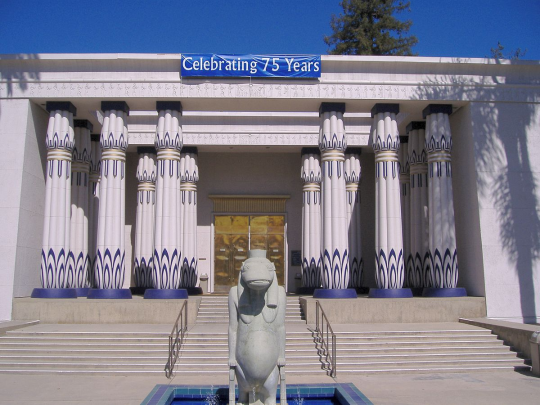
Roots in the Ancient World
The Rosicrucian movement, of which the Rosicrucian Order, AMORC, is the most prominent modern representative, has its roots in the mystery traditions, philosophy, and myths of ancient Egypt dating back to approximately 1500 BCE. In antiquity the word “mystery” referred to a special gnosis, a secret wisdom. Thousands of years ago in ancient Egypt select bodies or schools were formed to explore the mysteries of life and learn the secrets of this hidden wisdom. Only sincere students, displaying a desire for knowledge and meeting certain tests were considered worthy of being inducted into these mysteries. Over the course of centuries these mystery schools added an initiatory dimension to the knowledge they transmitted.
It is further traditionally related that the Order’s first member-students met in secluded chambers in magnificent old temples, where, as candidates, they were initiated into the great mysteries. Their mystical studies then assumed a more closed character and were held exclusively in temples which had been built for that purpose. Rosicrucian tradition relates that the great pyramids of Giza were most sacred in the eyes of initiates. Contrary to what many historians believe, our tradition relates that the Giza pyramids were not built to be the tombs of pharaohs, but were actually places of study and mystical initiation. The mystery schools, over centuries of time, gradually evolved into great centers of learning, attracting students from throughout the known world.
Pharaoh Thutmose III, who ruled Egypt from 1500 to 1447 BCE, organized the first esoteric school of initiates founded upon principles and methods similar to those perpetuated today by the Rosicrucian Order, AMORC. Decades later Pharaoh Amenhotep IV was initiated into the secret school. This most enlightened pharaoh—history’s first monotheist—was so inspired by the mystery teachings that he gave a completely new direction to Egypt’s religion and philosophy. He established a religion which recognized the Aton, the solar disk, as being the symbol of the sole deity—the foundation of life itself, the symbol of Light, Truth, and Joy—and changed his name to Akhnaton to reflect these new ideas. And although the earlier religion was later reestablished, the mystical idea was put forth in human consciousness, and its flame never died.
Centuries later, Greek philosophers such as Thales and Pythagoras, the Roman philosopher Plotinus, and others, journeyed to Egypt and were initiated into the mystery schools. They then brought their advanced learning and wisdom to the Western world. Their experiences are the first records of what eventually grew and blossomed into the Rosicrucian Order. The name of the Order, as it is now known, was to come much later. However, the Rosicrucian Order always perpetuated its heritage of ancient symbolism and principles.
Early European Beginnings
It was in the time of Charlemagne (742–814) that the French philosopher Arnaud introduced the mystical teachings into France, and from there they spread to much of Western Europe. Throughout medieval Europe mystical knowledge was often necessarily couched in symbolism or disguised and hidden in the love songs of Troubadours, the formularies of Alchemists, the symbolical system known as the Kabbalah, and the rituals of Orders of Knighthood.
While much of medieval Europe lay in darkness, the highly advanced Arab civilization preserved a large body of the mystical teachings through texts translated directly from the great libraries of the ancient world, such as Egypt’s Alexandria Library. Philosophy, medicine, mathematics, and alchemy were all important subjects preserved in these libraries and later transmitted to Europe by way of the Arabs.
Alchemy—the art of transmutation—came into prominence with the Alexandrian Greeks. It was then introduced to the Arabs, who then transmitted this art and forerunner of chemistry to Europe. The alchemists played a tremendous part in the early history of the Rosicrucian Order. While many alchemists were interested in making gold, some were more concerned with the transmutation of human character. European alchemists and Knights Templar, in contact with the Arab civilization at the time of the Crusades, brought much of this wisdom to the West. In Europe the transcendental alchemists—mystics and philosophers—sought to transmute the base elements of human character into the more noble virtues and to release the wisdom of the divine self within the individual. Some of the renowned alchemists who were also Rosicrucians or were closely associated with them were Albertus Magnus, Roger Bacon, Paracelsus, Cagliostro, Nicholas Flamel, and Robert Fludd.
As the saying goes, “The truth shall make you free.” Consequently, those who sought Truth and attempted to expound it to their fellow humans became the objects of persecution by tyrannical rulers or narrow religious systems. For several centuries, due to the lack of freedom of thought, the Order had to conceal itself under various names. However, in all times and places the Order never ceased its activities, perpetuating its ideals and its teachings, participating directly or indirectly in the advancement of the arts, sciences, and civilization in general, and always emphasizing the equality of men and women and the true solidarity of all humanity. As the Renaissance burst upon Europe with a flash of new interest in the arts and sciences, a mysterious publication printed in seventeenth century Germany and called the Fama Fraternitatis heralded a renewed interest in Rosicrucianism throughout Europe.
The Fama introduces Christian Rosenkreuz, a mythical character who was said to have traveled to centers of learning in the Near East and who personified the revived interest in esoteric studies and mystical learning.
As part of this great renewal, the renowned Sir Francis Bacon (1561–1626), English philosopher, essayist, and statesperson, directed the Rosicrucian Order and its activities both in England and on the continent.
Cross the Atlantic
In the late seventeenth century, following a plan originally proposed by Francis Bacon in The New Atlantis, a colony of Rosicrucian leaders was organized to establish the Rosicrucian arts and sciences in America. In 1694 Rosicrucian settlers made the perilous journey across the Atlantic Ocean in a specially chartered vessel, the Sarah Maria, under the leadership of Johannes Kelpius, master of a Rosicrucian Lodge in Europe. Landing in Philadelphia, the colonists established their first settlement and later moved further west in Pennsylvania. These Rosicrucian communities made valuable contributions to the newly emerging American culture in the fields of printing, philosophy, the sciences, and arts. Later, such eminent Americans as Benjamin Franklin, Thomas Jefferson, and Thomas Paine were intimately connected with the Rosicrucian community. In fact, many Rosicrucians played an important role in the great alchemical and social process leading to the founding of a new nation.
Throughout history, there have been periods of greater and lesser activity of Rosicrucianism around the world. While inactive in the Americas during the nineteenth century, the Order was very active in France, Germany, Switzerland, Russia, Spain, and other lands during this time.
In 1909 the American businessperson and philosopher H. Spencer Lewis journeyed to France, where he was duly initiated into the Rosicrucian Order and chartered with the responsibility of renewing Rosicrucian activity in America. With H. Spencer Lewis as its president, the Rosicrucian Order, AMORC, was incorporated in 1915 in New York City. In 1927 the Order moved its headquarters to San Jose, California—the site of present-day Rosicrucian Park.
Over the past century hundreds of thousands of people have been students of the Rosicrucian teachings. From the beginning, both men and women have played an equal role in the Rosicrucian Order, without regard to religion or race.
Throughout history a number of prominent persons in the fields of science and the arts have been associated with the Rosicrucian movement, such as Leonardo da Vinci (1452–1519), Cornelius Heinrich Agrippa (1486–1535), Paracelsus (1493–1541). Francois Rabelais (1494–1553), Theresa of Avila (1515–1582), John of the Cross (1542–1591), Francis Bacon (1561–1626), Robert Fludd (1574–1637), Jacob Boehme (1575–1624), Rene Descartes (1596–1650), Blaise Pascal (1623–1662), Baruch Spinoza (1632– 1677), Isaac Newton (1642–1727), Gottfried Wilhelm Leibnitz (1646–1716), Benjamin Franklin (1706–1790), Thomas Jefferson (1743–1826), Michael Faraday (1791–1867), Ella Wheeler Wilcox (1850–1919), Marie Corelli (1855–1924), Claude Debussy (1862– 1918), Erik Satie (1866–1925), and Edith Piaf (1916–1963). Today’s Rosicrucian legacy consists of a vast collection of knowledge which has come down to us through many centuries to enrich the cultural and spiritual heritage of AMORC. To the knowledge passed on by the sages of ancient Egypt were added philosophical concepts expressed by the great thinkers of ancient Greece, India, and the Arab world. Then, a few centuries later, the mystical precepts of Rosicrucian alchemists of the Middle Ages were formulated, followed by the vast expansion of knowledge which occurred from the Renaissance to the present day.
Source: The Mastery of Life, pgs. 19-23
49 notes
·
View notes
Text
Christian Williams Biography – Former Child Actor And Businessman

Anyone affiliated with the late legendary singer Andy Williams would be under the media radar. So, it’s no surprise to see many curiosities regarding Andy Williams’ late son, Christian Williams.
The younger Williams was a successful businessman. He rose to stardom after starring in his dad’s show The Andy Williams Show. Sadly, he has passed away now.
So, let’s learn more about this deceased media personality’s net worth, career, earnings, and more in this biography.
Christian Williams Was The Middle Child Of Andy Williams
The late businessperson was born Christian Jay Williams on April 15, 1965, in Centereach, New York, USA. He was the middle child of his parents. Read More
#Christian Williams Biography#Christian Williams Biography net worth#Christian Williams Biography career#former child actor#christian williams#biographyset#celebritybiography#celebritynetworth
0 notes
Link
0 notes
Text
Meet the donors at the heart of the latest indictment of a member of Congress
Meet the donors at the heart of the latest indictment of a member of Congress
Baaklini’s LinkedIn page lists him as the president of In Defense of Christians, a group that the embattled billionaire Gilbert Chagoury says he “instigated and funded.” Chagoury is a controversial businessperson, ambassador and self-styled international diplomat who has been sending money to different political causes for years. But his actions landed him in hot water when he was accused of…

View On WordPress
0 notes